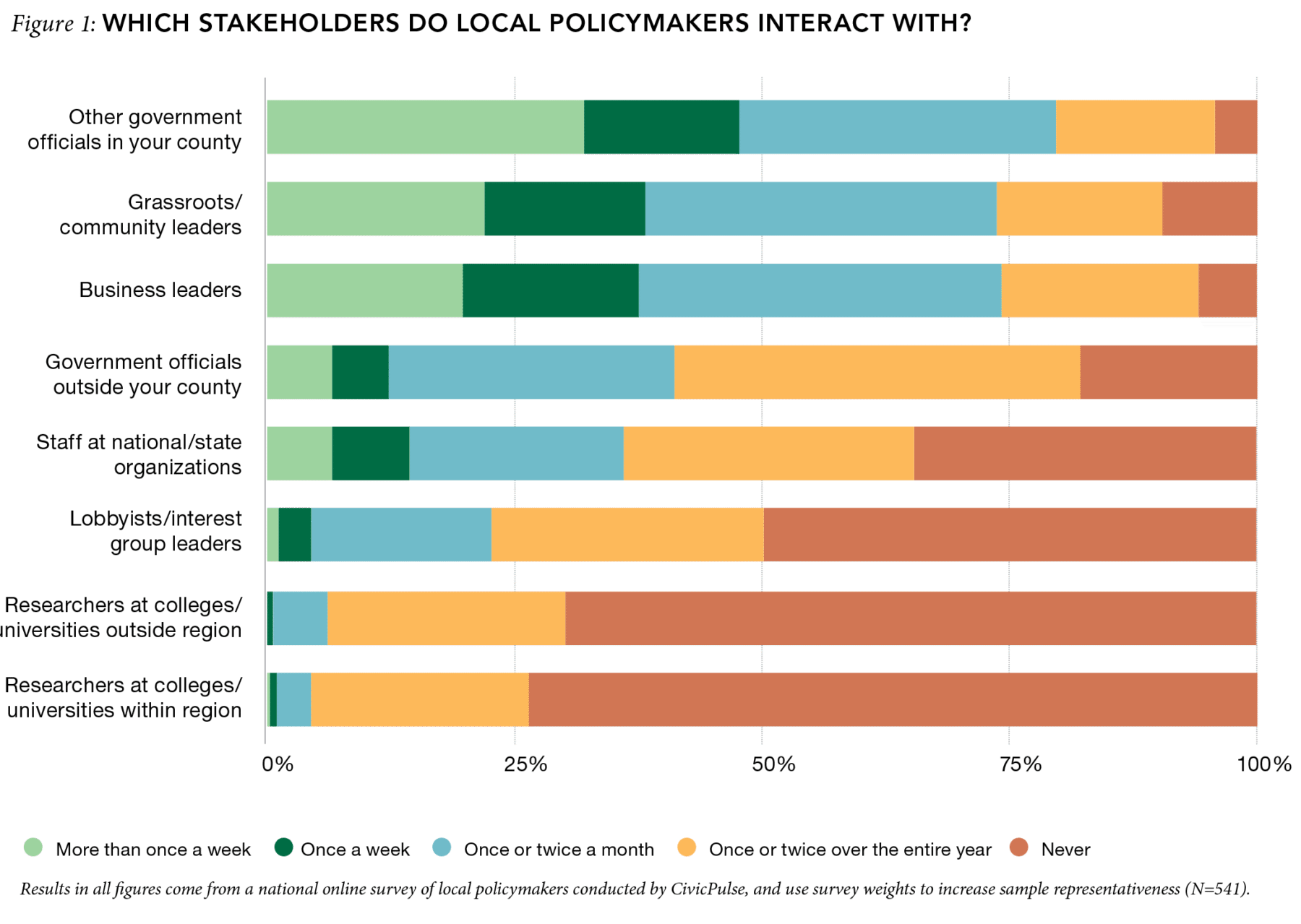Essay by I vividly remember March 2020, the month the United States shut down as COVID-19 spread uncontrollably and upended daily life. At the time, I worked at Cornell University in upstate New York. As we adjusted to a new normal, my Cornell colleague Elizabeth Day and I suspected that local leaders were facing unprecedented policy challenges that were not making the major headlines.
We decided to reach out to county policymakers throughout upstate New York, inviting them to share challenges they were facing. We offered to discuss research that might prove helpful. Responses soon poured in.
One county executive was trying to figure out how to provide childcare for first responders. Childcare centers were ordered closed, but first responders could not stay home to watch their kids. The executive needed systematic research on other options. A second local policymaker watched as her county’s offices shuttered and work moved online; she needed research on how other local leaders had used mobile vans to provide necessary services to rural residents without internet. Another county official sought to design a high-quality survey to elicit frank responses from municipal leaders about COVID-related challenges. In this case, she needed to discuss the fundamentals of survey design and implementation with an expert.
These responses led us to engage in an informal collaboration with each of these policymakers. By informal collaboration, I mean a collaborative exchange in which people with diverse forms of knowledge, expertise, and lived experience share what they know with the goal of developing an expanded understanding of a problem—yet still remain autonomous decisionmakers. In these cases, we as researchers brought knowledge about policy analysis and survey fundamentals, and the policymakers brought detailed knowledge about their present needs, local context, and historical challenges. All this diverse information was crucial to chart a way forward that was informed by evidence.
Yet it turns out our interactions were highly unusual. During our conversations, all the policymakers revealed that researchers from colleges and universities in their immediate area had never reached out in this way, and that they had no regular communication with local researchers.
This disconnect is a problem. Local policymakers are responsible for almost $2 trillion of spending annually, and they oversee many areas in which technical knowledge is essential, such as promoting economic development, building and maintaining roads, educating children, policing, fighting fires, determining acceptable land use, and providing public transportation…(More)”.
